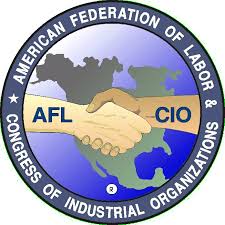In a speech at the National Press Club earlier today, the president of the AFL-CIO fired a warning shot at President Obama:
Move our way or watch us walk away in the 2010 elections, warned AFL-CIO president Richard Trumka just hours before meeting with President Obama and other labor leaders Monday to talk about health care legislation.Although the discussions with the President, like those among congressional leaders, have been conducted behind closed doors, some insiders are leaking details of the "deal-making" that is going on to get this monstrosity passed before the State of the Union address in early February. I'll give you a hint: new taxes. From the Wall Street Journal:
If the health-care bill ends up including provisions anathema to organized labor -- as now appears quite likely -- and the White House and Congress don't show more aggressiveness on job creation, financial regulation and labor law reform, then Democrats risk seeing union members sit on their hands during the 2010 midterms, Trumka said in a speech at the National Press Club.
"This is a moment that cries out for political courage, but it is not in much evidence," he said. Without it, he said, there could be a repeat of the 1994 midterm election Democratic wipeout.
"In 1992, workers voted for Democrats who promised action on jobs, who talked about reining in corporate greed and who promised health care reform. Instead, we got NAFTA, an emboldened Wall Street - and not much more," Trumka said.
"We swallowed our disappointment and worked to preserve a Democratic majority in 1994 because we knew what the alternative was. But there was no way to persuade enough working Americans to go to the polls when they couldn't tell the difference between the two parties. Politicians who think that working people have it too good -- too much health care, too much Social Security and Medicare, too much power on the job -- are inviting a repeat of 1994," he said.
House and Senate negotiators are considering applying for the first time the 1.45% Medicare tax to investment income as part of a compromise to pay for sweeping health-care changes.It is clear that the Congress will pass a health care bill before Obama's State of the Union speech. The content of that bill, whether it sets good policy or bad, whether it is constitutional or not, whether it delivers a lethal blow to the U.S. economy and prolongs the current recession are apparently completely irrelevant.
The revenue raised from the tax on investment income could allow congressional Democrats to reduce the sting of a tax on high-cost health-insurance plans, which the White House favors but many Democrats oppose, Democratic aides and others briefed on the negotiations said.
If the tax becomes part of a final agreement on health-care legislation, it would likely exempt income from pensions, 401(k)'s and other types of retirement accounts, these people said. It would also likely not affect those with adjusted gross income less than $200,000, or $250,000 for married couples, in deference to President Barack Obama's campaign promises.
A version of the plan with those parameters, put forward by Sen. Debbie Stabenow (D., Mich.), would raise $111 billion over 10 years, according to a December estimate from the congressional Joint Committee on Taxation.
That might be enough to scale back the so-called Cadillac plan tax and still have some left over to beef up subsidies to help the poor buy health insurance--a key goal of House negotiators in the talks.
"It's an obvious compromise," said Chuck Marr, director of federal tax policy at the left-leaning Center on Budget and Policy Priorities. "They need to find something between the House and Senate versions. The advantage of this proposal is that, like the House surtax, it is broad-based."
Since the 1954 law that established Medicare, the Medicare hospital insurance tax has applied to wage income but has not applied to capital gains, dividends, royalties and other forms of investment income.
The 2.9% tax on wages is divided in half--workers pay 1.45%, and employers pay 1.45%. The bill passed by the Senate on Dec. 24 would have raised the worker contribution to 2.35%.
It remains unclear whether investment income under a final House-Senate deal would pay the same freight as wages, 2.35% in the Senate-passed bill, or whether it would be subject to a lower rate, such as the 1.45% in Stabenow's initial proposal.
The Democrats on-board with this type of legislative bribery and under-the-table deal-making should be embarassed and ashamed. They should also be shown the door at the first opportunity.





Link to video: http://www.youtube.com/watch?v=OJEEQHOnI2Q
ReplyDelete